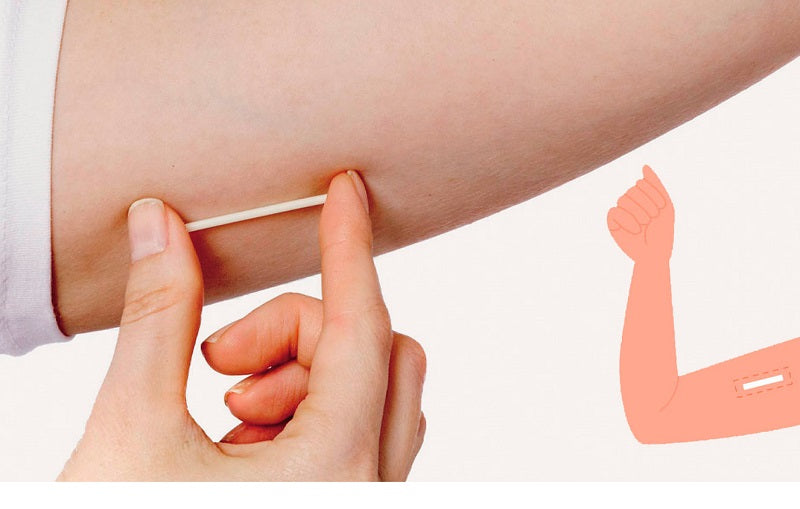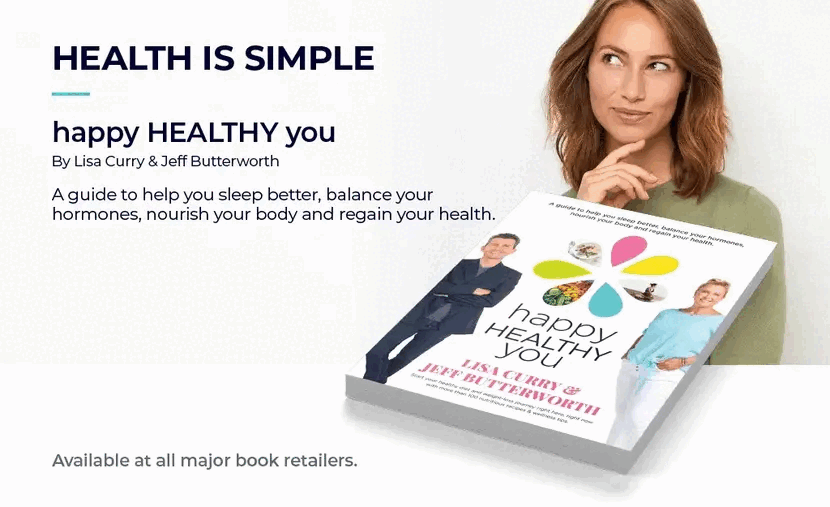We all want to be happy. Some would say happiness is the purpose of life. Such a simple concept but so hard for so many to achieve. The level of happiness in society is at an all-time low and it’s not by accident.
There is a very direct link between the way we live and our happiness. In this article, I explore what it means to be happy, why some people are happier than others, and what you can do about your happiness level.
What is happiness?
Happiness is a really complex and interesting state of the mind and body. Many factors—both physiological and psychological—combine to create your level of happiness. These include:
- relationships
- life purpose and meaning
- career satisfaction
- work/life balance
- financial well-being
- physical wellbeing
- cultural and spiritual satisfaction
- personal growth
- gratitude
- giving
- mindfulness
- self-love
The last of which is often ignored as an important factor, however, plays a much bigger role than we think. To feel happy, you need a rush of what are known as happy hormones.
How does happiness happen?
Feeling happy does not happen by accident. The feeling of happiness you experience is because of certain physical neurotransmitters or hormones. When you laugh or think of a nice thought, these physical substances literally make you feel happy.
Dopamine, serotonin, endorphins, and oxytocin—these are otherwise known as happy hormones. Gamma-aminobutyric acid (GABA), on the other hand, is responsible for bringing about a state of calm. When you feel happy and relaxed, it is the result of a surge of one or more of these neurotransmitters or hormones.
All the positive life situations in the world do not matter if your physical body does not respond to the emotional and mental cues. And hence lies the problem in our modern world—we have everything yet so many people are still unhappy. We often hear it being described as feeling numb or indifferent.
Happiness can only occur when a physiological state is achieved—i.e. when your body responds to external and internal stimuli by producing physical compounds known as happy hormones.
What are the happy hormones?
Happy hormones are hormones or neurotransmitters that your body produces to regulate your mood and emotions. They can make you feel good, happy, and relaxed. There are four main types of happy hormones: dopamine, serotonin, endorphins, and oxytocin.
Dopamine
This is a neurotransmitter that is involved in your brain's reward system. It makes you feel pleasure, motivation, and satisfaction when you achieve a goal, learn something new, or enjoy an activity.
Serotonin
This is a hormone and neurotransmitter that helps balance your mood, sleep, appetite, and digestion. It also affects your memory and learning ability. Low levels of serotonin are linked to depression and anxiety
Endorphins
These are hormones that act as natural painkillers and stress relievers. They are released when you exercise, laugh, have sex, or eat spicy food. They can also create a sense of euphoria and well-being
Oxytocin
This is a hormone that is also known as the "love hormone" or the "cuddle hormone". It is released when you hug, kiss, or bond with someone. It can also enhance trust, empathy, and social connection.
Health and Happiness
Unfortunately, happiness is not as simple as the body producing these hormones or neurotransmitters in response to a thought or situation. There is a complex cascade of regulation that ultimately is dependent on your level of health for the body to be able to respond appropriately.
It is important at this point to explain the fundamentals of how the body maintains health.
Physical, Mental and Overall Health
Often our mental health is isolated and seen as a mental health issue. Our body however is a whole being, not disconnected from the physical and mental. Both physical and mental elements have a very direct and important influence on the other.
When you are stressed mentally, there are negative physical effects. In the same manner, there are very real mental health consequences when your body is physically imbalanced. The best example is when we do not sleep well whenever we are stressed. When we do not sleep well, our hormonal balance is disrupted. Consequently, our emotional well-being suffers when hormonal balance is disturbed.

The diagram above illustrates the fundamentals of health: sleep, diet, hydration, exercise, and a positive mental outlook in life. When we take care of these fundamentals, we are rewarded with holistic well-being. When we ignore them, our health suffers and ultimately, our level of happiness.
How to improve our ability to produce happy hormones
To boost your body’s ability to produce happy hormones, you need to take care of the fundamentals of health. You can boost your levels of happy hormones by engaging in activities that stimulate their production.
- Get enough sunlight. This can increase your serotonin levels.
- Exercise regularly. Routine body movement can increase your dopamine, serotonin, and endorphin levels
- Laugh, meditate, and do things you enjoy. This can increase your dopamine and endorphin levels
- Eat healthy. Fruits, vegetables, fermented foods, healthy fats, sufficient protein, nuts, seeds, fish, and dark chocolate provide nutrients that support your happy hormone production.
- Take care of your digestive health. Most of the serotonin production in the body comes from beneficial bacteria in the gut.
- Spend time with your loved ones, friends, or even pets. This can increase your oxytocin levels.
- Get sufficient quality sleep. This doesn’t mean just getting eight hours of sleep daily. Studies show that those who have four or more hours of deep/REM sleep have better hormonal balance, less dementia, and even better weight management. Consistent bed and sleep times are also important.
- Learn to play an instrument or listen to music. Music activates the mesolimbic pathway which is a neural reward pathway in the brain associated with pleasure and reinforcement. Music can activate this pathway, leading to the release of neurotransmitters such as dopamine and serotonin.
- Be grateful. Expressing gratitude, whether through verbal communication or written reflection, may stimulate the release of endorphins, serotonin, and dopamine, contributing to feelings of pleasure and happiness. Gratitude practices are also linked to reduced cortisol levels, alleviating stress, and promoting hormonal balance. In addition, acts of gratitude, especially in social contexts, may enhance the release of oxytocin, a hormone associated with social bonding and positive emotions.
- Take supplements. Fermented probiotics, magnesium, omega-3 fatty acids, and herbal medicines like chaste tree and black cohosh assist in hormonal production and balance. Apoptogenic herbal medicines such as passionflower and lemon balm also calm the nervous system and improve sleep quality.

What to avoid to reduce our happy hormones
Achieving hormonal balance is key to overall health and well-being, but modern life throws a lot of obstacles in the way. To support healthy hormone levels, it’s important to avoid behaviors and environmental factors that dysregulate the complex systems regulating metabolism, growth, and development.
Below is a list of things you should avoid to achieve better hormonal health.
- Stress. Stress is accumulative and needs to be released via exercise, meditation, sleep, and mindfulness. Triggering a stress response activates your cortisol levels and lowers your dopamine, serotonin, and endorphin levels.
- Lack of sleep. Get 7-8 hours of deep, quality sleep. Good quality sleep is the result of healthy habits. It’s not just what you do before bed and in bed. Everything you do during your waking hours positively or negatively affects your sleep quality.
- Excessive social media. Scrolling through social media platforms for extended periods and seeking instant validation through likes and comments can provide a quick dopamine boost. However, it may contribute to feelings of inadequacy, anxiety, and decreased well-being over time.
- Junk food. Consuming sugary or highly processed foods can lead to a rapid release of dopamine due to the pleasurable taste. However, frequent indulgence can contribute to health issues, including weight gain and energy crashes.
- Binge-watching TV shows or movies. Watching several movies or multiple episodes of a TV series in one sitting can be enjoyable and provide a dopamine rush. However, it may lead to sedentary behaviour, disrupted sleep patterns, and reduced productivity.
- Excessive shopping. Making impulsive purchases or engaging in retail therapy can provide a sense of pleasure and accomplishment in the short term. However, it may lead to financial strain and contribute to clutter and waste.
- Gaming addiction. Playing video games excessively, especially those designed to provide instant rewards and feedback, can lead to a surge in dopamine. However, it may result in neglect of responsibilities, social isolation, and negative impacts on mental health.
- Drug and alcohol use. Substance abuse, including alcohol and recreational drug use, can lead to an immediate release of dopamine, producing feelings of euphoria. However, it poses significant health risks and can contribute to addiction.
- Excessive Internet surfing. Engaging in mindless internet surfing, clicking on random links, or spending hours online can provide constant novelty and stimulation, leading to a dopamine surge. However, it may contribute to procrastination and time wastage.
- Excessive coffee consumption. Having large amounts of caffeinated beverages, such as coffee, can lead to a quick energy boost and a release of dopamine. However, it may result in jitteriness, increased heart rate, and disrupted sleep.
- Drama or conflict. We all have relationships in our life which may result in drama or conflict. Ask yourself does this relationship add to my health or detract from it. Distance yourself from any relationship which has a negative impact on you.

Key Takeaway
Lack of happiness, anxiety, depression, and indifference can be significantly improved by focusing on the fundamentals of health. Understand that the physical production of hormones and neurotransmitters has a significant impact on our emotional well-being and happiness.
Refocusing your actions towards health and away from destructive activities will bring greater levels of happiness. It won’t happen overnight, but it will happen if you are patient and work with your body, rather than against it.









Leave a comment
This site is protected by hCaptcha and the hCaptcha Privacy Policy and Terms of Service apply.